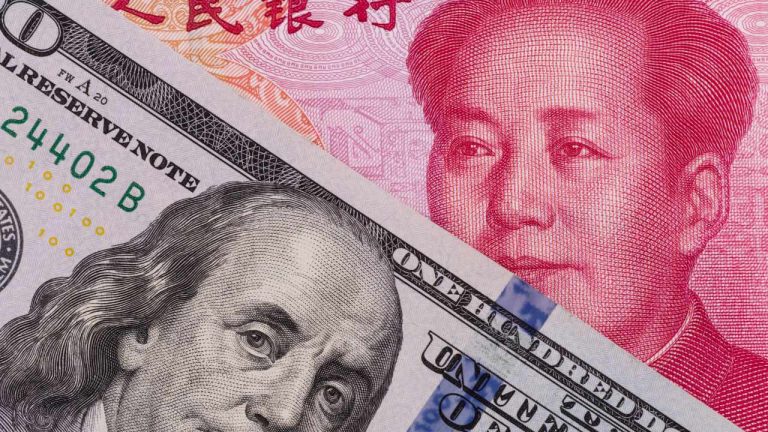Central Banks Reduce US Dollar Holdings, Plan to Increase Chinese Yuan Exposure, Study Shows
Publikováno: 11.7.2023
 A study by a $1.5 trillion asset management firm has revealed that central banks are reducing their U.S. dollar holdings while seeking to increase Chinese yuan holdings. “Central banks are diversifying currency holdings, stirred by geopolitical uncertainties and attractive opportunities in emerging markets,” the study shows. ’Central Banks Are Diversifying Currency Holdings’ Invesco, an asset […]
A study by a $1.5 trillion asset management firm has revealed that central banks are reducing their U.S. dollar holdings while seeking to increase Chinese yuan holdings. “Central banks are diversifying currency holdings, stirred by geopolitical uncertainties and attractive opportunities in emerging markets,” the study shows. ’Central Banks Are Diversifying Currency Holdings’ Invesco, an asset […]

A study by a $1.5 trillion asset management firm has revealed that central banks are reducing their U.S. dollar holdings while seeking to increase Chinese yuan holdings. “Central banks are diversifying currency holdings, stirred by geopolitical uncertainties and attractive opportunities in emerging markets,” the study shows.
’Central Banks Are Diversifying Currency Holdings’
Invesco, an asset management firm with $1.5 trillion in global assets under management, published its 11th annual study of sovereign investors on Monday. The “2023 Invesco Global Sovereign Asset Management Study” includes insights from 142 chief investment officers, heads of asset classes, and senior portfolio strategists representing 85 sovereign wealth funds and 57 central banks. Together, these institutions oversee around $21 trillion in assets as of March 31.
Noting that “Central banks are diversifying currency holdings, stirred by geopolitical uncertainties and attractive opportunities in emerging markets,” Invesco described:
Amid volatile yields, 2022 saw a flight to gold, questions around the U.S. dollar’s future as the world’s reserve currency, and increased diversification of currency holdings.
According to the study, central banks see gold as a safe-haven asset, which led to record purchases in 2022, “with net acquisitions of 1,136 tonnes, marking a 12th consecutive year of a net increase in gold holdings.” While emphasizing that almost 20% of these net purchases came from Turkish and Chinese central banks, Invesco noted that other central banks, particularly in the Middle East and emerging markets, were also noteworthy gold buyers in 2022.
The study also explores de-dollarization. “The freezing of Russian assets by Western nations has thrust the world’s reliance on the U.S. dollar as the dominant reserve currency into the spotlight, raising questions about its long-term viability amidst high U.S. debt levels,” Invesco explained, adding:
A growing percentage of central banks year-on-year believe that the U.S. debt levels are negatively impacting the dollar.
“However, central banks generally agree that there is no clear alternative to replace the U.S. dollar as the world’s reserve currency, with 53% disputing that the dollar will be weaker in five years, up from 46% last year,” the asset management firm continued. One central bank based in an emerging market was quoted as saying:
People have been looking for alternatives to the dollar and euro for a long time and they would’ve gone to them already if there were any suitable alternatives.
The study also examines the potential for the Chinese yuan to replace the U.S. dollar as the world’s dominant currency. “The Chinese renminbi, with its increasing allocations in recent years, is often considered a potential future alternative,” the asset manager detailed, adding that in the long term (10 years or more), “most central banks do not anticipate a significant shift in global trade currencies,” but “a considerable proportion do expect a shift towards renminbi (27% of central banks), but expectations differ based on the region.”
Invesco pointed out that “sentiment surrounding the renminbi becoming a true reserve currency has declined year on year, with a significantly greater proportion of central banks disagreeing that it will achieve that status within five years.” In addition, the firm stressed that “barriers such as liquidity, property sector debt, and political risk hinder the renminbi’s potential to overtake the U.S. dollar as the world’s reserve currency.” Nonetheless, the asset manager concluded:
Despite these concerns, central banks still expect to increase renminbi holdings over time.
Do you think the Chinese yuan will displace the U.S. dollar as the world’s dominant currency? Let us know in the comments section below.